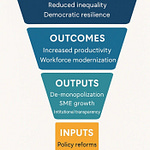Beijing could shift its diplomatic focus primarily to its neighbourhood and strive to foster friendlier relations with countries in and around its periphery.
Within the next ten years or so, the economic and military disparity between the US and China, on the one side, and the rest of the world, on the other, will have continued to widen.
Would it be Towards Bipolarity, Not Multipolarity?
Several key references that provide in-depth insights into this complex relationship on the strategic, economic, and political dimensions of U.S.-China relations within the context of an emerging multipolar world order.
1. "China's Global Strategy: Towards a Multipolar World" by Jenny Clegg (2009): This book examines China's strategic approach to fostering a multipolar international order, emphasizing a more democratic determination of world affairs.
2. "China–US Relations in a Multipolar World" in China and the World (2022): This dialogue between Huiyao Wang and Kishore Mahbubani explores the implications of multipolarity for U.S.-China relations, discussing how both nations navigate the complexities of a multipolar global landscape.
3. "US–China Tit-for-Tat Politics in the Asia-Pacific: Beyond Thucydides Trap to Multipolarity" by Muhammad Jawad Hashmi (2022): This article argues that small powers in the Asia-Pacific play a crucial role in rebalancing and creating multipolarity in the region, compelling both the U.S. and China to find common ground for cooperation.
4. "Yes, the World Is Multipolar" by Stephen M. Walt in Foreign Policy (2023): Walt contends that significant power is now concentrated in more than two states, with middle powers like Japan and India becoming increasingly influential, thereby shaping the context of U.S.-China relations.
5. "The Myth of Multipolarity: American Power's Staying Power" by Michael Beckley in Foreign Affairs (2023): Beckley challenges the notion of a multipolar world, arguing that the United States and China remain the two most powerful countries, with no other nation currently in their league.
6. "China's evolving approach to multipolar world order in 2024" by Lowy Institute (2024): This analysis highlights recent developments in China's foreign relations, characterized by assertiveness and nuance, as it adapts to a multipolar world order.
7. "Balancing Tensions and Opportunities in US-China Relations" by Salzburg Global Seminar (2023): David Firestein argues that the West misinterprets China's goals, highlighting that China seeks multipolarity, not global dominance, and discusses the implications for U.S.-China relations.











